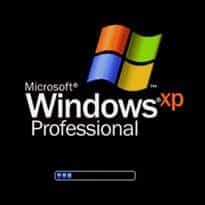Eight in ten NHS desktops still on XP
- 18 September 2013

Microsoft’s decision to end support for Windows XP in April next year looks set to cause significant problems for the NHS, which still has 85% of its desktops running on the obsolete operating system.
The scale of the XP challenge is revealed today in a report from EHI’s research arm, EHI Intelligence, which calculates that there are 677,000 computers across the health service that work on the OS, which was launched in October 2001.
By contrast, just 14% of the computers covered by the research (or 110,000) are running the Windows 7 OS that Microsoft introduced in October 2009, and just 1% (10,600) are using the newer Windows 8.
The report, which examines servers, networks, hardware, and mobile devices, finds that the NHS has a generally dated infrastructure, and a surprisingly large fleet of PCs for an organisation whose staff need to work on wards and across the community. But it has a particularly large problem with XP.
Senior analyst SA Mathieson suggested that this could be attributed to trusts investing in hardware in the early years of the National Programme for IT, the support provided by Microsoft’s Enterprise-wide Agreement with the NHS until 2010, and the large number of health applications that only run on the OS.
“This report shows that most NHS organisations invest in infrastructure and devices when times are good or they have a specific reason to do so, such as a new building or EPR project,” he said.
“In other circumstances, they tend to stick with what they have got. That certainly seems to be the case with XP, and it means many trusts are now facing a major headache given that Microsoft insists that it is going to end support for the system on 8 April next year.”
The problem facing the NHS is not, primarily, a licensing issue. In an interview with EHI, Neil Jordan, general manager, worldwide health for Microsoft, confirmed that the server, desktop and Office licences that the NHS bought under the EwA between 2001 and 2010 are perpetual licences.
They also entitle trusts to upgrade to the latest versions of Windows and Office covered by the deal at any time. However, trusts are likely to find the move expensive, since many will want to replace their PCs at the same time, and a big drain on their IT departments.
Some NHS IT directors interviewed for the Intelligence report seem to be hoping that Microsoft will change its mind or that a national solution will be found for the NHS.
However, Jordan emphasised to EHI that while trusts will be able to buy “bespoke” support packages from Microsoft, the company will stop producing security patches for the OS, potentially exposing its users to serious risk.
Jordan added that Microsoft is adopting a “stick and carrot” approach to shifting the NHS – and other major XP users – off the OS, with the carrots coming in the form of support for systems that work on the more modern versions of Windows and that support mobile working.
Mathieson said the ‘NHS IT infrastructure’ report showed there were similar opportunities for trusts and suppliers across the infrastructure, hardware and mobile market, with companies that can offer trusts compelling hardware management, mobile and data solutions likely to do well over the next few years.
“Politicians are focusing on improving the NHS’s electronic patient records, but these will only realise their potential with excellent IT infrastructure,” he added. “The best trusts and boards have realised they have to update both, and suppliers which can support this should reap rich rewards.”
Read the interview with Neil Jordan in Industry View.

EHI Intelligence’s latest report – ‘NHS IT infrastructure: UK NHS market size and opportunities for servers, networks, hardware, devices and operating systems’ – is published today.
The report’s findings and implications for suppliers will also be discussed at an analyst briefing in central London this Friday. Further details of both the report and the event are available from Dan Read.




